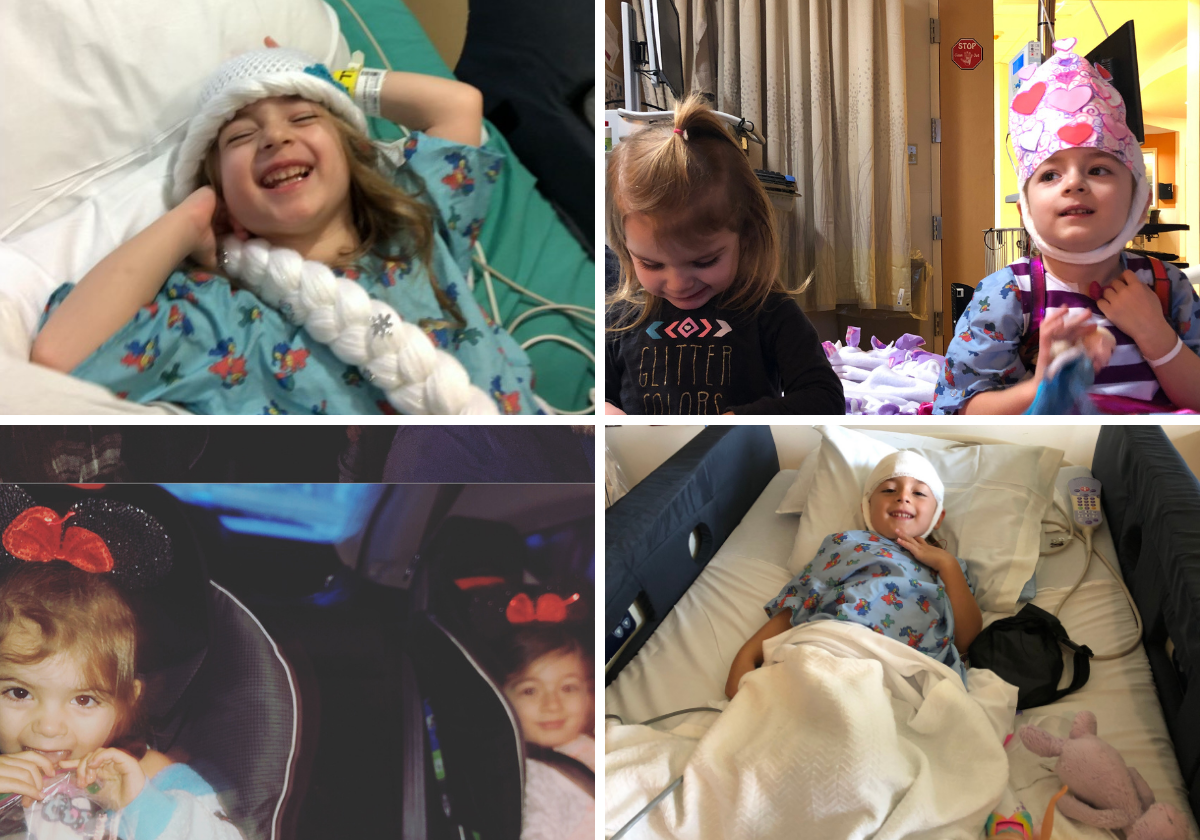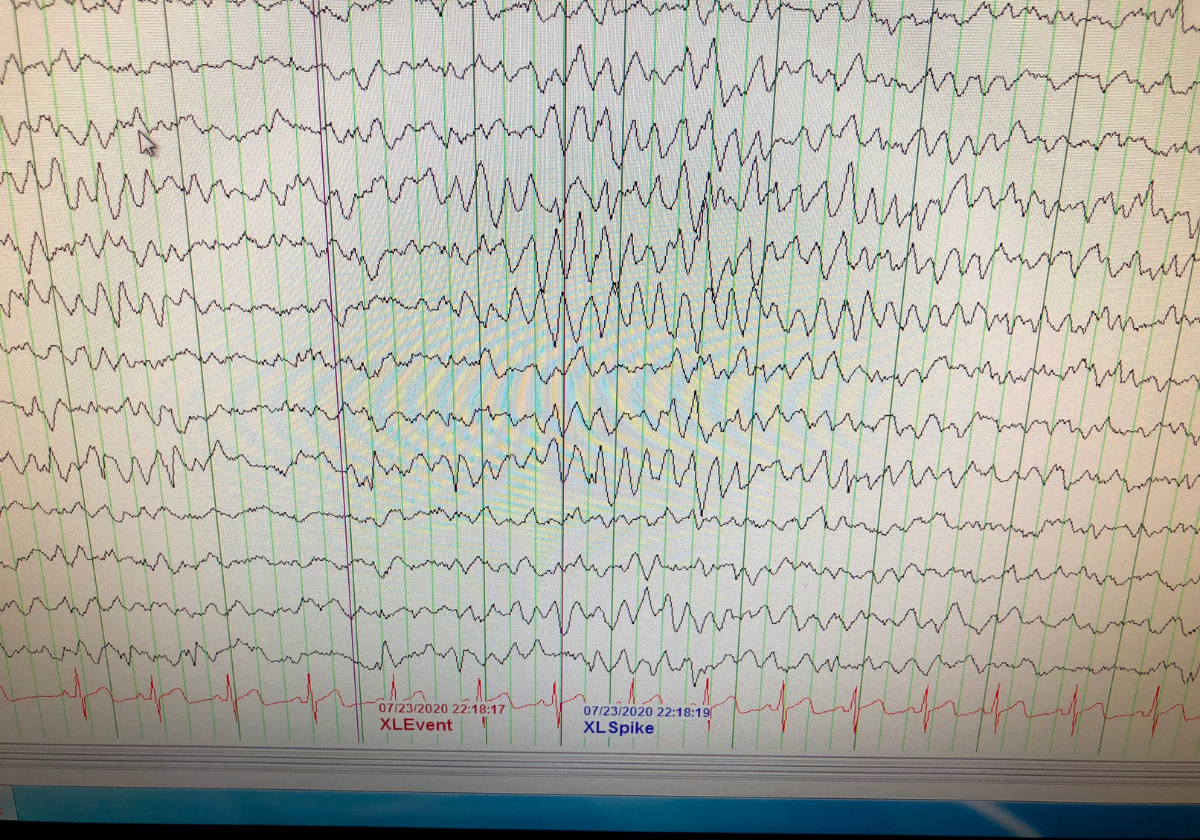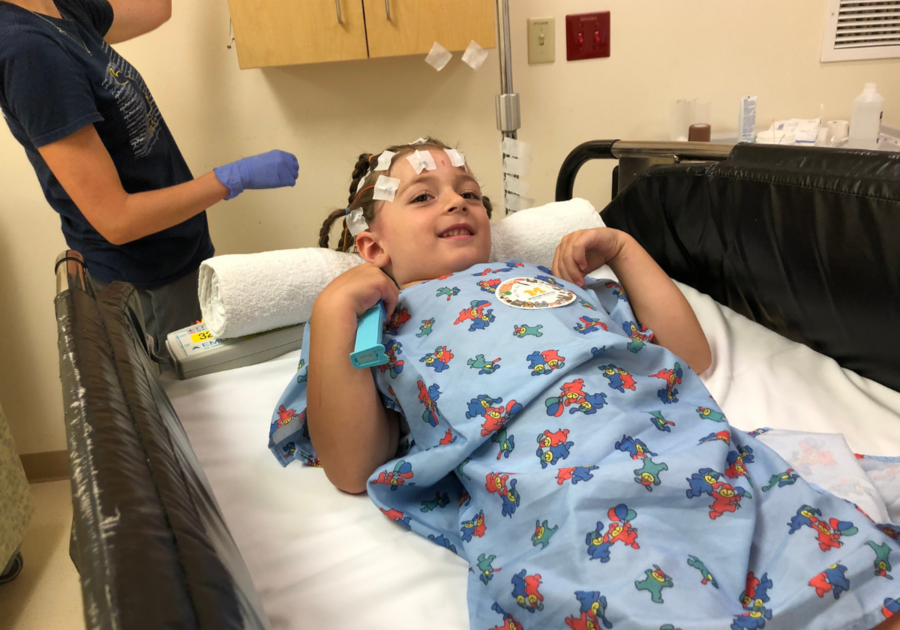Did you know that more people live with epilepsy than with autism spectrum disorders, Parkinson's disease, multiple sclerosis, and cerebral palsy - combined? Epilepsy is not rare, so more than likely someone in your circle has been affected by it.
That statistic, however, did not make it anymore easier to swallow when my daughter, Emmy, was diagnosed at the age of three. Epilepsy does not run in either my husband's or my own family, so as parents this was not something that was on our radar. At the age of two, my daughter started having some staring spells which looking back now I believe they were absence seizures. She also had focal seizures that sent her to the ER, but they were always ruled as febrile (fever-induced) seizures which are very common in young children and something that is not treated and will resolve on their own.
That was until November of 2018. Emmy went into a seizure, I quickly checked her temperature and there was no fever. I just had this sense that we needed to go to the hospital. We rapidly loaded her and her younger sister into their car seats and headed towards the hospital. We reached Urgent Care quicker so we decided to stop there since she was still having a seizure. I learned that this was maybe not the best decision as all the doctors did there was monitor her and waited for the ambulance to arrive. Once the EMS team arrived they were able to give her Valium to stop her seizure. At this point, however, she had been in a seizure for 35 minutes so we were not sure what she would be like when she woke up.
Once we arrived at the hospital there was talk of intubating her since she was not clearing her CO2 well, but thankfully that was not necessary. She received a chest x-ray to check for fluid in the lungs and a brain CT to make sure that there was no major damage. We were then transported by ambulance to a children's hospital over an hour away.
Upon arrival, she had her first of many EEGs and was in the hospital overnight for observation. Thankfully she was back to her usual happy self very quickly! We were able to go home the next day with daily medication and emergency medication. Since that seizure, her daily medication has made it so we have not had any more seizures during the day!
We thought we were totally in the clear until a year ago. We started noticing that Emmy's speech was getting pretty strange. She would stutter a lot and word recall was becoming painfully slow. The neurologist decided that we should do a 24 hour EEG in the hospital. That EEG confirmed our worst fears and with it came a new diagnosis. The doctors learned that Emmy has ESES (electrical status epilepticus in sleep) a rare disorder. Essentially she is having epileptic seizures while she is sleeping with no outward signs. At that point, it was 84% of the time while she was sleeping so we needed to add another powerful medication at bedtime.
It has been nearly 10 months since starting the additional bedtime medication. She has had an additional two overnight EEGs and is currently down to seizure activity 70% of the time. This of course is not what we had hoped for, but she continues to be such a happy, joyful, and kind girl that we are just rolling with the idea that this might be her normal and that is okay. It has affected her learning the most, so we have decided to homeschool her, but hey lots of parents are in that boat this year.
Epilepsy is scary and not something that I ever imagined that would be part of my story, but it is an excellent teacher on kindness and appreciating all of the good moments. Emmy's attitude is what impresses me the most though and is my greatest teacher. She has been in and out of the hospital for testing, poked, and prodded yet she honestly does it all with a smile and a joyful attitude.
 |
How My Family Has More Fun with Epilepsy
These are things that my family has done to make the diagnosis of Epilepsy seem less scary for Emmy. If your child is facing any kind of chronic illness this is an easy list of ideas to remain positive and even have fun.
- Turn trips to the hospital into an adventure! We traveled to a hospital out of state once and we had heard amazing things about this place. We had a friend who assured us that it really was the "Disney World" of hospitals. So we ran with that idea even showing up in our mouse ears as a family!
- There is no such thing as overpacking. Most hospitals have a dedicated staff person who will bring your child activities and even explain procedures. With COVID-19 unfortunately we have found that these staff members have been furloughed so it is always important to come prepared. I also bring crafts, puzzles, and snacks.
- Take advantage of room service. I let Emmy order dessert with every meal in the hospital. This helps me in encouraging her to eat healthy items first and to drink all the liquids. She just thinks that she is winning by eating a cookie after breakfast. Not staying overnight? Swing through your child's favorite drive-thru after your appointment.
- Remove any stigma of your child's disease. When Emmy was first diagnosed we would pretend that epilepsy was her superpower. Any time she had a new teacher at church we would introduce Emmy and let her tell her teacher what her superpower was. Now that she is older she just bursts out that she has epilepsy, but it doesn't make her feel different or strange. Epilepsy to her is now just a feature, like her eye or hair color.
 |
13 Things to Know About Epilepsy
November is Epilepsy Awareness Month and a great time to learn more about this common disease. Here are thirteen facts about epilepsy from the Epilepsy Foundation:
- You can’t swallow your tongue during a seizure. It's physically impossible.
- You should NEVER force something into the mouth of someone having a seizure.
- DON'T restrain someone having a seizure. Most seizures end in seconds or a few minutes and will end on their own.
- The correct seizure first aid is simple: Stay. Safe. Side.
- Epilepsy is NOT contagious. You simply can't catch epilepsy from another person.
- Anyone can develop epilepsy.
- Most people with epilepsy CAN DO the same things that people without epilepsy can do.
- People with epilepsy CAN handle jobs with responsibility and stress. People with seizure disorders are found in all walks of life. They may work in business, government, the arts, and all sorts of professions.
- Epilepsy is a chronic medical problem that many people can be successfully treated. Unfortunately, treatment doesn't work for everyone. AT LEAST 1 million people in the United States have uncontrolled epilepsy.
- Epilepsy is NOT rare. There are more than twice as many people with epilepsy in the U.S. as the number of people with cerebral palsy (500,000), muscular dystrophy (250,000), multiple sclerosis (350,000), and cystic fibrosis (30,000) combined. Epilepsy can occur as a single condition or may be seen with other conditions affecting the brain, such as cerebral palsy, intellectual disability, autism, Alzheimer's disease, and traumatic brain injury.
- You CAN die from epilepsy. While death in epilepsy doesn't happen frequently, epilepsy is a very serious condition and individuals do die from seizures. The most common cause of death is a sudden unexpected death in epilepsy (SUDEP).
- What happens in a seizure may look different from one person to another. However, seizures are usually stereotypic, which means the same things or behaviors tend to occur in a person each time they have a seizure. The seizure behavior may be inappropriate for the time and place, but it is unlikely to cause harm to anyone. (Learn about types of seizures.)
- People with epilepsy are usually not physically limited in what they can do.
 |
For even more fun, connect with us on social media!
 |  |  |  |



